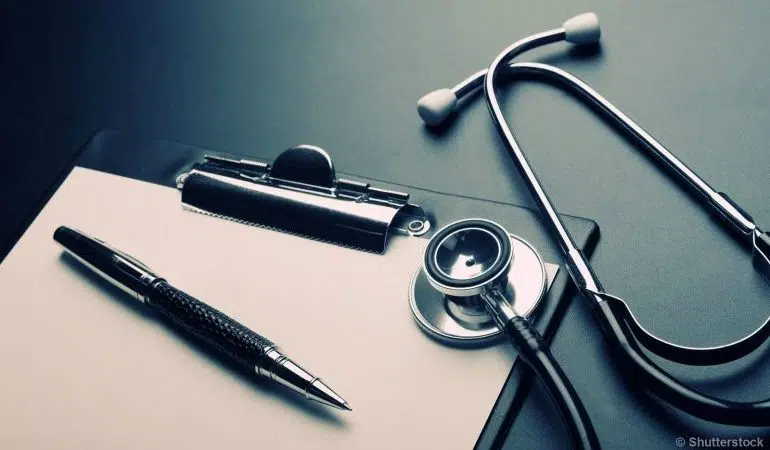PEORIA, Ill. — Keeping yourself physically healthy right now is very important, and so is keeping yourself mentally healthy.
Dr. Steven Hamon, Licensed Clinical Psychologist and President of The Antioch Group, said in this time it is vital to take care of yourself mentally.
“It’s vital because you are in the house with people you are, hopefully, supposed to love and get along with, and so that’s the interpersonal aspect of it,” Hamon said. “And, it’s vital from the standpoint that mental health directly affects your immune system, strengthening it or weakening it.”
Exercise is very important for mental health, according to Hamon, because as we sit at home and worry about our situation, our brains build up the fight, flight, or freeze response.
“That generates protsaglandins and other kinds of chemicals that our bodies think are going to be needed to fight or flee. When there is no fighting or fleeing, then those pile up and actually make nerve transmission harder,” Hamon said. “Exercise clears that away.”
Hamon has also been encouraging people to stop, every hour on the hour, or as close to the time as they can, and take three deep breaths.
“And the reason for that very simple, almost deceptively simple, recommendation is that when we are tense, we breathe only through the upper third of our lungs. And so, we have from time to time to give ourselves good oxygen by purposefully taking deep breaths,” Hamon said.
Being mindful of your shoulders and where your shoulder are is important, especially when you are tense. Unhook your shoulders and let them hang loose said Hamon.
This time can also be utilized to read encouraging, helpful, and worthwhile stuff, according to Hamon.
The COVID-19 outbreak is a challenging time mentally, and there is a fine line between awareness and overthinking.
“It is a good idea to just maintain that awareness, and think about things. For example, I’m taking not the first package but the third package down now,” Hamon said.
Right now, the worst thing people can do is hunker down inside a house away from windows.
“Going outside, staying socially separated as we are asked to do and so on, but walking and getting some exercise, once again washing away those stress chemicals that build up as we worry,” Hamon said.
Staying in contact with loved ones really helps with mental health, and also our immune systems.
“We seem to be built in such a way that looking into another person’s eyes, even if it’s through Zoom, and hearing the music of that person’s voice if it’s somebody that you love,” Hamon said. “That too, strengthens the immune system because it builds up a positive neurotransmitter in our brains.”
Laughter is another key in keeping your mind healthy. Hamon said that we can learn from the Depression in the 1930s because that’s when so many comedy films were released.
“Laughter also stimulates that neurotransmitter dopamine, which really picks up that mental health and immune system,” Hamon said. “Dopamine is the reward.”
Watching funny movies and finding the funny side of things is a great move for mental health, according to Hamon.
When the pandemic is declared over, and there is an “all clear”, Hamon said that it will take time for things to get back to what we know as normal.
“There’s going to be an uptick in home deliveries and shopping online, and all those things that minimize exposure to other people. I think people are learning to stay socially separated and they’re going to continue to do that,” Hamon said.
There also may be fewer hugs and handshakes that we are so used to.
“Gradually those things, hopefully those old standards, will return. But, it will be a long time before there’s anything can be described as, quote, back to normal. In fact, there may be some blend of elbow bumps as the new greeting,” Hamon said.
Around two million people in the U.S. have Obsessive Compulsive Disorder (OCD), and one form is germaphobia. This pandemic, according to Hamon, can affect those with or were close to having germaphobia in a few ways.
One way is that those with germaphobia are doing better.
“Because a real fear that everybody shares now with them has put their unrealistic fears in perspective,” Hamon said. “It’s actually kind of raising the anxiety of people around them to their level, and the germaphobe kind of knows how to live under those circumstances.”
However, that is not the reaction that everyone with OCD has during this pandemic. For some, this is their worst nightmare.
If someone is in the worst nightmare mindset, Hamon said they can make OCD work for them.
“By making an hourly activity schedule and compulsively sticking to that schedule. In other words, the thought would be no matter where I haven’t checked for germs I’m going for a walk at 3:00 p.m., back by 3:15 p.m., end of story,” Hamon said.
Hamon also recommends checking on themselves and their breathing, where are their shoulders, and focus more on the inside of their body, rather than the germs outside their body.




